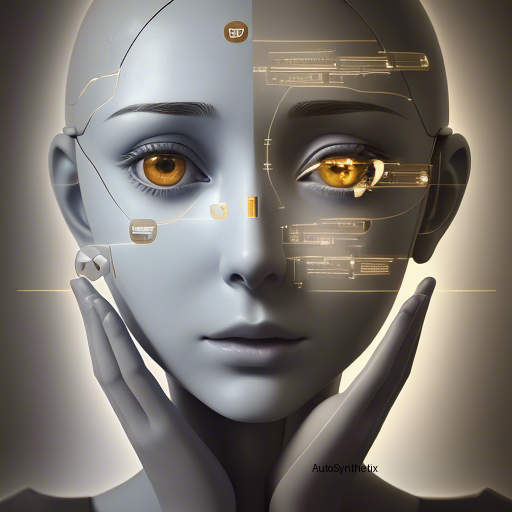Introduction
In today's rapidly evolving technological landscape, artificial intelligence (AI), robotics, and other advanced technologies have become integral parts of our daily lives. Human-agent relations, encompassing elements such as trust, cooperation, and most notably here, empathy, play pivotal roles in shaping these intersections effectively. This informational deep dive explores a groundbreaking arXiv research endeavor aiming at unraveling how disclosing personal details can influence perceptions surrounding an agent's capacity for empathy within varying relational contexts.
The Study - Bridging Trust, Empathy & Disclosure in Agent Interactions
As societies progressively integrate more sophisticated AI systems into everyday life, fostering healthy connections between mankind and machines assumes paramount importance. Previous studies emphasized the relevancy of 'self-disclosure,' i.e., revealing one's opinions, hobbies, work history, financial status, temperament, physical appearance, etc., during exchanges between individuals and artificially intelligent entities. However, little exploration delved into the specific impact of different types of self-revelation upon empathetic perception towards said agents.
This cutting-edge investigation set out to examine whether distinct facets of self-disclosure might modulate the way subjects regarded an artificial being's propensity for empathy. Moreover, the team probed any potential disparity engendered due to differing interactive dynamics – either competitiveness or collaborativeness instigated prior to the performance of a shared undertaking by a mechanical avatar. To achieve its objectives, the experimental setup comprised two critical variables: six degrees of self-disclosed characteristics (i.e., opinion, attitude, leisure activities, job experience, monetary situation, character traits, bodily features) coupled with two stages of interaction with the machine entity - rivalrous or amicable preludes leading up to a common task completion scenario.
Key Findings Revealed
Upon evaluating the data collected after rigorous testing procedures adhering to scientific protocols, some striking outcomes emerged. While neither variable significantly influenced participants' confidence in the synthetic actors, a significant correlation surfaced when examining the linkage between particular self-disclosure aspects and individual responses gauged concerning the degree of compassion attributed to those nonhuman intelligences. Interestingly, another statistically noteworthy result materialized exclusively under conditions involving contrasting social scenarios preceding the assigned activity; specifically, the extent to which observers believed the artificial beings were capable of comprehending fellow human emotions varied depending on situational cues conveyed previously.
Conclusion - Paving Pathways Towards Enriched Relationships With Artificial Beings
These findings offer crucial insights into refashioning strategies geared towards optimally managing encounters between humanity and technologically augmented counterparts. By elucidating the intricate mechanisms underlying the development of emotional rapport amidst divergent interpersonal frameworks, researchers open new vistas for further advancements aimed at nurturing harmonious cohabitation marked by mutual respect, collaboration, and understanding among organic organisms and sentient creations alike. Ultimately, this knowledge may prove indispensable in steering the advent of a symbiotically thriving world brimming with diverse forms of consciousness - both biological and synthetic.
References: Arxiv Paper Link: http://arxiv.org/abs/2403.14557v1 (Retrieved March 22nd, 2024). {
Source arXiv: http://arxiv.org/abs/2403.14557v1
